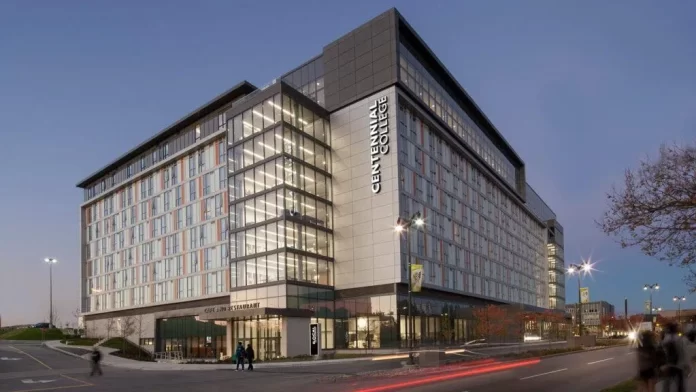Established in 1966, Centennial College is a public university situated in Toronto, Ontario, Canada. It was Ontario’s first community college to be founded. Renowned for its dedication to offering easily accessible, superior education, the college has expanded to rank among Canada’s most culturally diverse post-secondary establishments.
Campuses
- The main campus, Progress Campus, provides business, hospitality, tourism, and information technology programmes.
- Ashtonbee Campus specialises in programmes related to engineering technology and transportation.
- Programmes in community studies and health are housed at Morningside Campus.
- Story Arts Centre: Offers programmes with a focus on media, communications, arts, and design.
Programs:
- provides a large selection of programmes, such as graduate certificates, degrees, advanced diplomas, and diplomas.
- Study topics include business, engineering technology, communications, media, health and community studies, science, and more.
International Students:
- Provides comprehensive support services for international students, including language training, academic advising, and cultural integration programmes.
History and Mission:
- Originally founded in Ontario to offer affordable postsecondary education, Centennial College has since changed its focus to include training students for success in the workplace and promoting global citizenship.
- focuses on offering fair and inclusive education while making adjustments to meet the shifting demands of society and the workforce.
Alumni Network:
possesses a robust network of alumni that provide career counselling, networking opportunities, and mentorship to current students.
Student Life:
- vibrant campus life that offers a wide range of extracurricular activities and clubs to suit a variety of interests and backgrounds.
- Frequent gatherings, seminars, and social gatherings that promote personal growth and community involvement.
Technology and Innovation:
- furnished with cutting-edge equipment and amenities to improve the educational experience.
- encourages creativity by providing labs, incubators, and collaborative places for students to develop and test ideas.
Work-Integrated Learning:
- stresses the importance of work-integrated learning (WIL) options for gaining real-world experience, like internships, co-ops, and field placements.
- Works with companies to develop WIL experiences that are meaningful and improve employability.

































